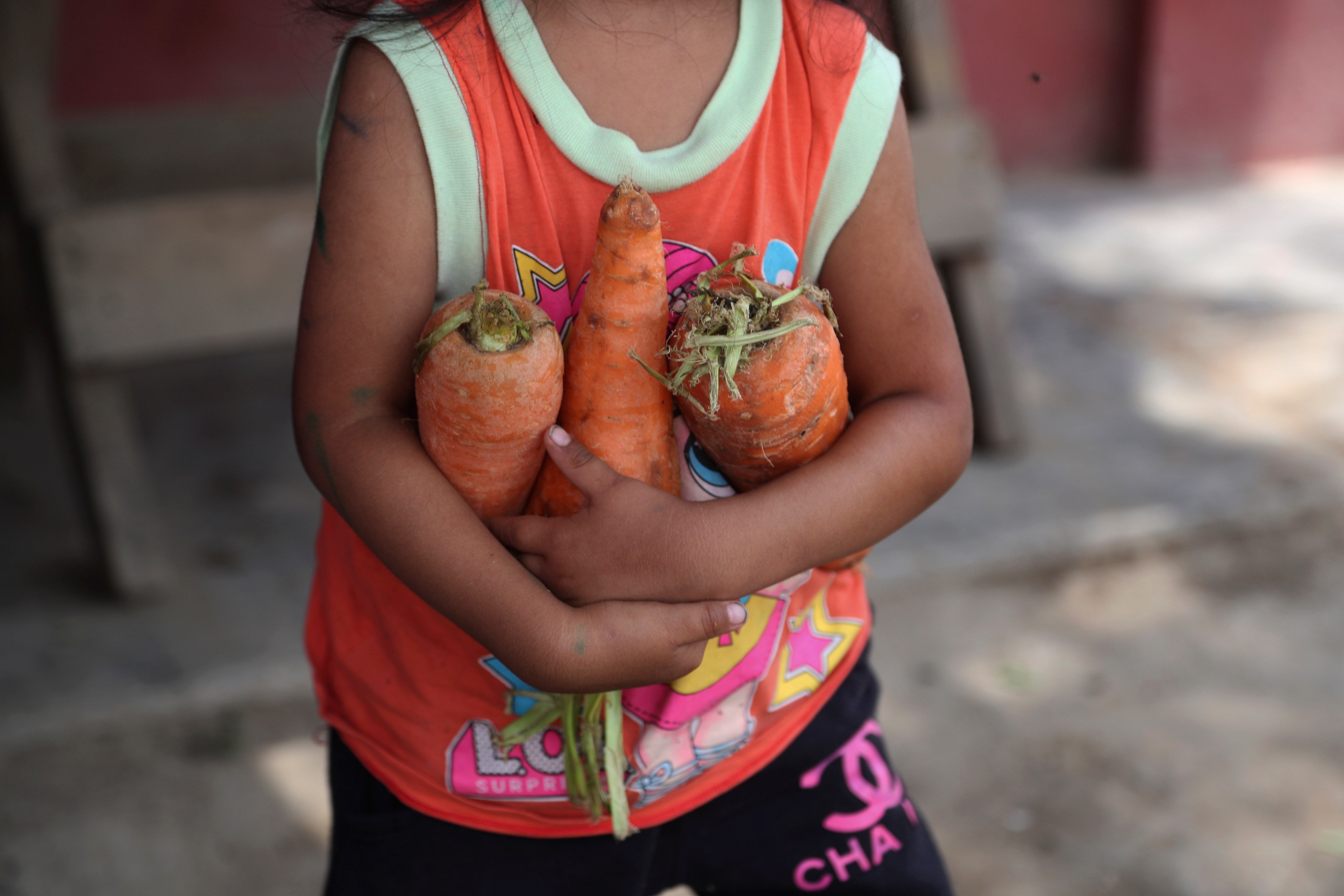Common pots prepared by neighbors feeding thousands in Peru
A survival strategy that first appeared in Peru's capital four decades ago during the country's civil conflict has become vital since the coronavirus pandemic arrived in the South American nation

Your support helps us to tell the story
From reproductive rights to climate change to Big Tech, The Independent is on the ground when the story is developing. Whether it's investigating the financials of Elon Musk's pro-Trump PAC or producing our latest documentary, 'The A Word', which shines a light on the American women fighting for reproductive rights, we know how important it is to parse out the facts from the messaging.
At such a critical moment in US history, we need reporters on the ground. Your donation allows us to keep sending journalists to speak to both sides of the story.
The Independent is trusted by Americans across the entire political spectrum. And unlike many other quality news outlets, we choose not to lock Americans out of our reporting and analysis with paywalls. We believe quality journalism should be available to everyone, paid for by those who can afford it.
Your support makes all the difference.At dawn, Genoveva Satalaya and her neighbors walk through Lima s food markets hoping to find a kind merchant who will donate food to help fill the “common pot” that is feeding their neighborhood.
The survival strategy that first appeared in Peru's capital during the country s civil conflict four decades ago has been vital since the coronavirus pandemic arrived in this South American nation. With the country again under a lockdown, Satalaya's pot is feeding 120 people, including seniors, children and pregnant women.
Satalaya and her neighbors prepare lunch Monday through Friday. There’s not enough food for weekday breakfasts or dinners or weekend meals.
“We don’t have meat, not even a tuna,” Satalaya, a 45-year-old mother of two, said Tuesday while she and her neighbors cooked rice and potatoes for lunch.
The common pots, also seen in other Latin American countries, have emerged as a symbol of the struggles of the region. Thousands of them are in use throughout Peru at levels not seen since the 1980s and 1990s during the armed conflict between the state and the Shining Path terrorist group.
Seventy percent of the Peruvian labor force, including most residents of Satalaya’s neighborhood, work in the informal economy and live by the motto: “If you don’t work today, then you don’t eat.” With no unemployment benefits and no possibilities to work from home, they eke out what they can as street vendors, turning many streets into makeshift food markets.
The uncontrolled spread of the coronavirus in Peru has been partly driven by the informal labor force’s need to go to work every day. The second wave of cases currently sweeping through has pushed hospitals to the brink, with intensive care units reaching capacity. Peru has recorded more than 1.1 million cases and over 41,000 deaths related to COVID-19, the disease that can be caused by the coronavirus.
The pandemic also hit Peru's economy hard, causing a 12% drop in gross domestic product for 2020. The public health emergency left more than a third of Peruvians short of food due to a lack of money, forcing them to cook in groups, according to a June survey by the Institute for Peruvian Studies. In Latin America, some 20 million people will suffer from hunger, according to preliminary estimates by the United Nations.
There are almost a thousand common pots in Lima that are recognized by officials in the municipality, but many, including the one run by Satalaya, are not registered and do not receive any kind of help. The government announced last week that it would send aid to many common pots, but since there are so many, the help may not reach every neighborhood.